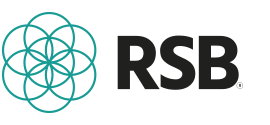Removal of barriers for use of waste & residue derived biofuels in the EU to benefit operators across the region – and beyond

Removal of barriers for use of waste & residue derived biofuels in the EU to benefit operators across the region – and beyond
In a positive development for operators working within, or selling biofuels to the EU, RSB is pleased to announce a significant reduction in market barriers for those using waste and residue supply chains. This is made possible due to a landmark decision by RSB and ISCC to mutually recognise materials that have been certified in each other’s different systems as EU RED compliant. We have developed a procedure that allows for mutual recognition with other voluntary standards if the assurance system has been benchmarked as equivalent to RSB and the standard is recognised by the RSB.
Certifications in the context of EU RED for waste and residues require extreme rigor and both certification systems have implemented the most robust interpretation of the legislation. This collaboration provides assurance to operators and all users in the supply chain that their use of waste and residues reaches the highest level of credibility and traceability required for the EU market.
What benefits does this bring for operators?
We believe that this collaboration between two different systems represents a significant boost for operators across the supply chain, who can now source wastes and residues and derived biofuels that are certified in either system and retain their claim of EU RED compliance. Waste and residues derived biofuels are particularly high risk due to the incentives their use receives in the EU – ensuring that there are credible mechanisms for traceability in the supply chain is therefore crucial. By reducing market barriers and making compliance easier for operators, we believe this development is a big step in the development of efficient and sustainable supply chains for waste and residues in the bioeconomy.
RSB and ISCC have different approaches to sustainability, but this collaboration in a huge growth market will provide a boost to all operators who use waste and residues in their supply chains and will smooth the path for increased innovation and the scaling up of projects.
Who will benefit?
This mutual recognition will benefit all operators in the EU biofuels market, as well as those looking to sell into the region. It removes potential barriers to the uptake of waste and residue materials into sustainable supply chains, improving market access for all operators.
If you would like to learn more about our mutual recognition agreement and how it can assist your operation, get in touch today!
